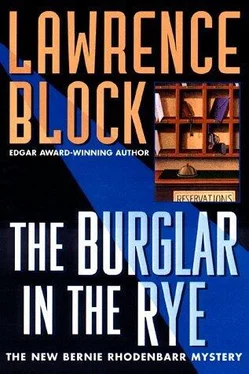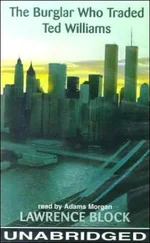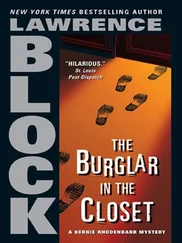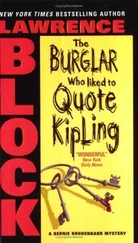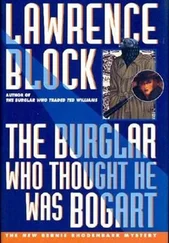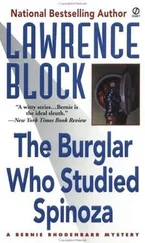He’d done a master’s thesis on Fairborn, of course, and expanded it for his doctorate. And he’d spent his life teaching at one college or another, always on the move, never getting tenure. Wherever he went, he taught a couple of sessions of freshman English, along with a seminar on Guess Who.
“But they don’t really want to study him,” he said. “They just want to sit around and talk about how great Nobody’s Baby is, and how it changed their lives. And, of course, what a ‘cool dude’ Fairborn must be, and how they’d love to call him up late at night and talk about Archer Manwaring and all, but how they can’t because he’s such a man of mystery. Do you realize how many books he’s written since then?”
I nodded. “I have some of them on the shelves.”
“Well, you would. You’re in the business. But the man has published a new book every three years, forever taking chances, constantly growing as a writer, and hardly anyone pays any attention. The kids don’t care. They don’t want to read the later work, and judging by the papers they turn in, most of them don’t get very far with it.”
“But you’ve read all the books.”
“I read everything he writes,” he said, “and everything written about him. He’s my life’s work, Mr. Rhodenbarr. When I’m done, I’ll have produced the definitive book on the life and work of Gulliver Fairborn.”
“And that’s why you want copies of the letters.”
“Of course. Anthea Landau was his first agent, the only one with whom he had a close relationship.”
“Not too close,” I said. “The way I heard it, they never met.”
“That’s probably true, although the letters may show otherwise. That’s only one of the questions they may answer. Did they meet? Were they more to each other than author and agent?” He sighed. “The answer to both of those questions is probably no. Still, she was as close to him as anyone. What did he confide in his letters? What did he say about the books he was working on? About his thoughts and feelings, about his inner and outer life? You see why I need those letters, Mr. Rhodenbarr?”
“I see why you want them,” I said. “What I don’t see is what you can do with them. Fairborn went to court once to keep his letters from being quoted in print. What makes you think he won’t do it again?”
“I’m sure he will. But I can wait as long as I have to. He’s almost thirty years older than I am. I don’t drink or smoke.”
“Good for you,” I said. “How about cursing?”
“Oh, I’m not a goody-goody,” he said, about as convincingly as one President insisting he wasn’t a crook or another claiming he’d never inhaled. “But the vices I have aren’t the sort that compromise one’s health. I don’t know that Fairborn smokes, but I have it on good authority that he drinks.”
“ Rye whiskey,” I said.
“That’s what they say, and I gather he drinks quite a good deal of it. Oh, I hope he lives for years and years, Mr. Rhodenbarr. I hope he writes many more books and that I have the chance to read them all. But all men are mortal, even if some of them manage to create immortal work during their lifetime. And, while he could live another thirty years and I could get run over by a bus this afternoon…”
“The odds are you’ll outlive him.”
“That’s what any insurance actuary would tell you. I won’t even attempt to publish my book during his lifetime. Believe me, I can write with a freer hand if I don’t have to worry what he’d think of it. Once he’s no longer in the picture, I can publish as I please. For the time being, my only concern is making the book as accurate and as comprehensive as possible.” He smiled with all the warmth of an SS officer in a forties film. “And that is where you come in,” he said.
“Except it’s not.”
“I beg your pardon?”
“I don’t have the letters,” I said.
“Oh?”
“Not even a postcard. It’s true I’ve been charged with burglary in the past, and it’s also true I was arrested at Anthea Landau’s hotel last night. But I didn’t steal her letters.”
“His letters, you mean.”
“Whatever.”
“I suppose you would have to say that.”
“So would Pinocchio,” I said, “unless he wanted his nose to grow.”
“If you don’t have them, who does?”
It was a good question, and I wished I knew the answer myself. I told him as much, and his face took on a crafty look. “Suppose they come into your possession,” he said. “If they’re floating around they have to wind up somewhere, and who’s to say it won’t be with you?”
“Who indeed?”
“You’d have to consider your options and select the best course open to you. But, if only for your own protection, you’d want to run them through a Xerox machine, wouldn’t you?”
“That’s what burglars always do,” I said.
“Really?”
“We Xerox everything. Furs, jewelry, rare coins…”
He nodded, registering as new data what had been an attempt at levity. “Just let me have a set,” he urged. “I don’t have any money, that must be obvious, but I could manage a few dollars to cover the cost.”
“The cost?”
“Of making copies.”
“In other words,” I said, “you could pay me ten cents a page.”
“Well, perhaps a bit more than that. But what I can offer you is something far more important. You’ll be helping a scholar with his life’s work. And, of course, you’d be listed in the acknowledgments when the book was published.”
“Now you’re talking,” I said. “How often does a humble burglar get that sort of recognition? ‘Thanks to Bernard Rhodenbarr’-do you suppose you’d have room for my middle name?”
“I don’t see why not.”
“‘To Bernard Grimes Rhodenbarr, for sharing with me useful documents stolen from the late Anthea Landau.’ Wouldn’t that make her proud?”
“Miss Landau?”
“My mother, to see her son get such recognition. Of course, the police might view it differently, but I suppose we could be a shade more circumspect in the wording. And who’s to say the statute of limitations on burglary won’t run out by the time you’re able to publish?”
He agreed it was possible, even likely, and gave me a card with his name on it, Lester Eddington, along with that of a college and a town in Pennsylvania, neither of which I’d ever heard of. I said as much and learned the town was in the western part of the state, near the Ohio border.
“You must be tired,” I said. “You had a long drive this morning.”
But he’d been in town since the weekend, staying at a hotel. Not the Paddington, by any chance? Nothing so good, he assured me, and named a hotel on Third Avenue which was indeed a step or two down from the Paddington, but not too many steps away from it. He’d come to town to talk to the folks at Sotheby’s on the slim chance they could be persuaded to copy the letters for him. And he’d hoped for an audience with Anthea Landau, either to see the letters or to interview her, a request she’d always refused in the past. And he had other leads to pursue as well.
“Well,” he said, straightening up. “I’ve taken up enough of your time. If it turns out that you have those letters…”
“I’ll keep you in mind.”
He’d have liked something a little firmer than that, but I guess he was used to disappointment. He nodded shortly and thrust his hand across the counter in a manner awkward enough to leave me wondering for a moment just what I was supposed to do with it.
I shook it, which was evidently what he’d had in mind. Then I gave it back to him and off he went.
The door had barely closed behind Eddington when the phone rang. It was Carolyn, offering to pick up lunch and bring it over. “I know today’s your turn,” she said, “but I also know you just opened up, so I thought I could take two turns in a row. Unless you had a late breakfast and want to skip lunch altogether.”
Читать дальше
